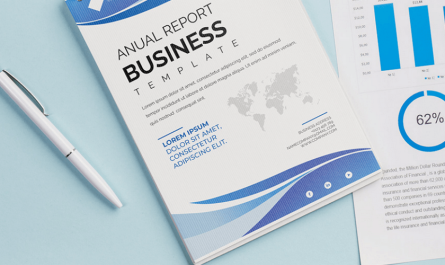Buying your first home can be both exciting and overwhelming, especially when you’re trying to make sense of all the financial programs available. One often-overlooked tool that can make a big difference is the mortgage credit certificate (MCC). If you’ve never heard of it, you’re not alone—but understanding how it works could help you save thousands of dollars in taxes and make homeownership more affordable.
In this article, we’ll explain what mortgage credit certificates are, how they work, who qualifies, and why they might be one of the best-kept secrets for first-time homebuyers. You’ll also learn how this program ties into the homebuyer tax credit and how to use these mortgage benefits effectively.
What Are Mortgage Credit Certificates (MCCs)?
A mortgage credit certificate is a program that provides eligible homebuyers with a federal tax credit for a portion of the mortgage interest they pay each year. It’s not a deduction—it’s a direct credit against your tax liability. This means it reduces the actual amount of taxes you owe to the IRS, dollar for dollar.
The MCC program is typically offered through state or local housing finance agencies, designed to make homeownership more accessible for low- to moderate-income buyers. Essentially, the government rewards you for buying a home by letting you keep more of your money each year.
How the Mortgage Credit Certificate Works
When you qualify for an MCC, your local housing authority issues a certificate that specifies the percentage of mortgage interest you can claim as a tax credit—usually between 10% and 50%, depending on your state’s program.
For example, let’s say you have an MCC that provides a 25% credit and you pay $8,000 in mortgage interest in a given year. You can claim a $2,000 tax credit (25% of $8,000). The remaining $6,000 can still be deducted as mortgage interest on your tax return if you itemize deductions.
Over time, these savings can really add up—especially for first-time homeowners trying to balance mortgage payments, insurance, and property taxes.
The Difference Between a Tax Credit and a Deduction
It’s important to understand how the homebuyer tax credit under the MCC differs from a standard deduction. A tax deduction lowers your taxable income, while a tax credit reduces the amount of taxes you actually owe.
Let’s illustrate with a quick example:
- If you earn $60,000 and take a $2,000 deduction, you’re taxed on $58,000.
- If you earn $60,000 and get a $2,000 credit through an MCC, your tax bill is reduced by the full $2,000.
This makes the mortgage credit certificate an incredibly powerful tool for improving your post-tax income and lowering your overall housing costs.
Who Qualifies for Mortgage Credit Certificates?
Each state and local housing agency has its own eligibility criteria, but most MCC programs are aimed at first-time homebuyers or individuals who haven’t owned a home in the past three years. Common requirements include:
- Income limits: Your household income must fall below a certain threshold, which varies by state and county.
- Home price limits: The home you’re buying must be within a specific price range set by the program.
- Primary residence: You must live in the home as your main residence—it can’t be a rental or investment property.
- Loan type: Most programs work with fixed-rate mortgages and conventional loans, but FHA, VA, and USDA loans may also qualify.
To find out if you’re eligible, contact your state’s housing finance agency. You can locate yours through the National Council of State Housing Agencies directory.
How to Apply for a Mortgage Credit Certificate
Step 1: Check Availability in Your State
Not all states offer MCC programs, so the first step is to check if your state or county participates. You can do this through your local housing authority or by visiting HUD’s official website.
Step 2: Work with an Approved Lender
Only approved lenders can issue mortgage credit certificates. Once you find a participating lender, they will guide you through the process of applying alongside your mortgage application.
Step 3: Submit Required Documents
Be prepared to provide proof of income, tax returns, and other supporting documentation. Once approved, you’ll receive the certificate, which you’ll use when filing your annual taxes.
Step 4: Claim the Credit on Your Tax Return
To claim your homebuyer tax credit, you’ll use IRS Form 8396 each year. Your lender or housing agency will provide instructions and the information needed to complete the form.
Benefits of Mortgage Credit Certificates
1. Long-Term Tax Savings
The biggest advantage of an MCC is the potential for annual savings. Depending on your interest payments and credit rate, you could save thousands of dollars over the life of your loan. These mortgage benefits can make a huge difference in your overall financial health.
2. Increased Home Affordability
Because the credit reduces your tax liability, lenders may factor this benefit into your qualifying income. This could make it easier to qualify for a mortgage or afford a slightly higher-priced home without increasing your financial strain.
3. Works with Other Programs
MCCs can often be combined with other state or federal programs, including down payment assistance or first-time homebuyer grants. This makes it an even more powerful resource for maximizing your homebuying potential.
4. Flexibility for Future Years
As long as you stay in your home and keep your mortgage, you can claim the homebuyer tax credit each year. If your income changes or you refinance, your lender can help you adjust your MCC accordingly.
Potential Drawbacks to Consider
While mortgage credit certificates offer great advantages, they may not be the right fit for everyone. Here are a few factors to keep in mind:
- Administrative fees: Some housing agencies charge a small application fee for the MCC program.
- Recapture tax: If you sell your home within nine years and your income has significantly increased, you might owe a recapture tax. This is designed to prevent high-income earners from benefiting unfairly.
- Limited availability: Not every state or lender participates, and some programs run out of funding during high-demand periods.
Despite these limitations, the long-term savings often outweigh the downsides—especially for first-time homebuyers who qualify.
Mortgage Credit Certificates vs. Other Homebuyer Programs
Many people confuse MCCs with other tax incentives or mortgage programs. Here’s how they differ:
- MCC vs. FHA Loans: FHA loans help buyers qualify for mortgages with low down payments, while MCCs provide ongoing tax savings.
- MCC vs. Down Payment Assistance: DPA programs offer upfront financial help, whereas MCCs reduce annual tax liabilities.
- MCC vs. First-Time Homebuyer Tax Credit: The federal homebuyer tax credit from 2008–2010 was a one-time incentive, but MCCs offer continuing benefits year after year.
If you’re comparing different homeownership programs, see our related guide: Understanding Down Payment Assistance and Mortgage Grants (example.com).
Are Mortgage Credit Certificates Worth It?
For many first-time homebuyers, the answer is yes. The combination of tax savings, accessibility, and compatibility with other programs makes MCCs an attractive option. They not only make homeownership more attainable but also provide lasting financial benefits through lower taxes.
However, always evaluate your personal situation. If you plan to move within a few years or your income is likely to rise significantly, talk to a financial advisor or your lender about the potential recapture tax and long-term impact.
Final Thoughts
Mortgage credit certificates are one of the most underutilized tools for new homeowners. They offer an ongoing homebuyer tax credit that can ease financial stress and provide meaningful mortgage benefits. By reducing your tax bill every year, you can free up more money for home improvements, savings, or future investments.
If you’re preparing to buy your first home, check with your local housing agency or lender about MCC eligibility. A little research today could translate into years of savings down the road.
For more smart homeowner tips, read our post: How to Make the Most of Your First Home Purchase (example.com).







